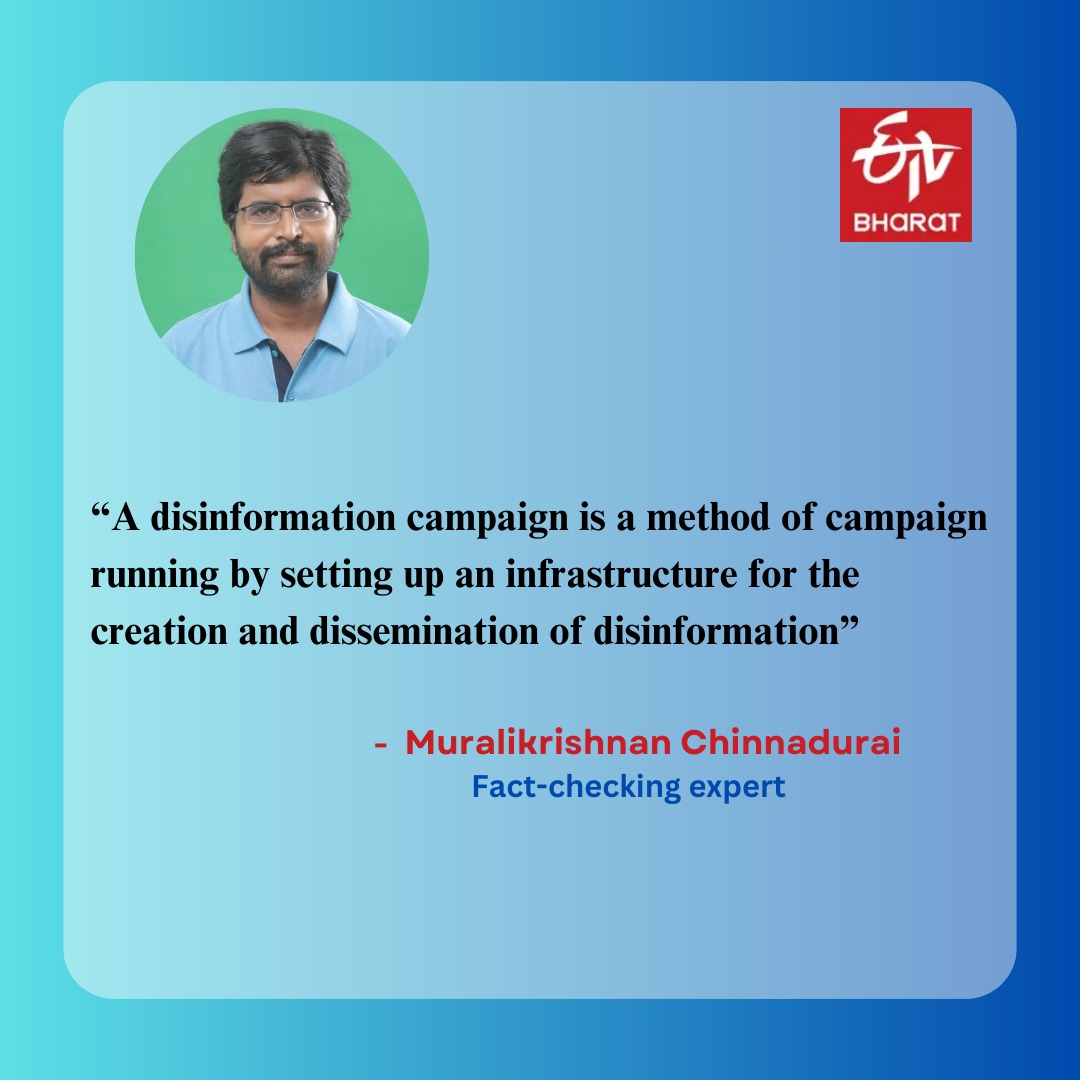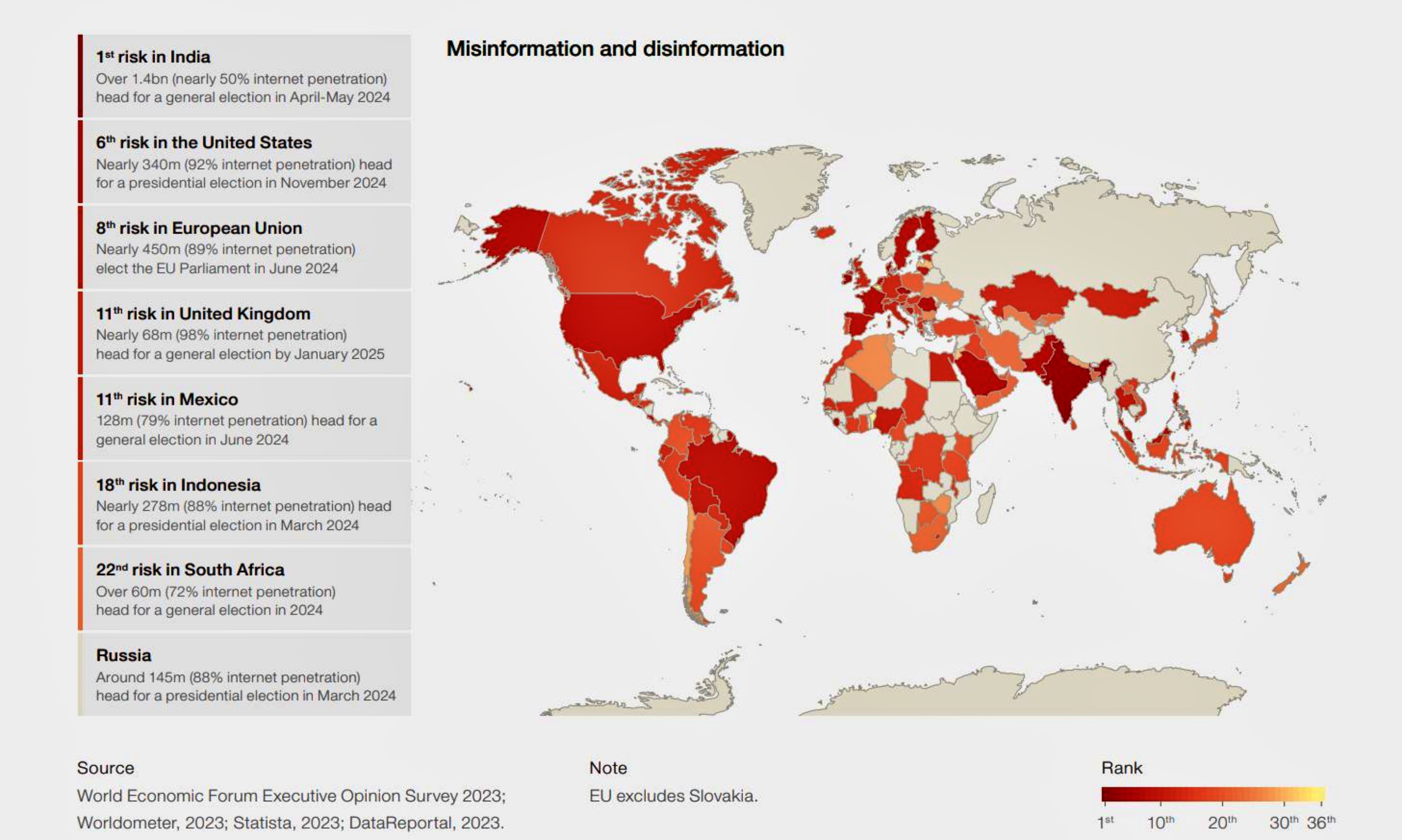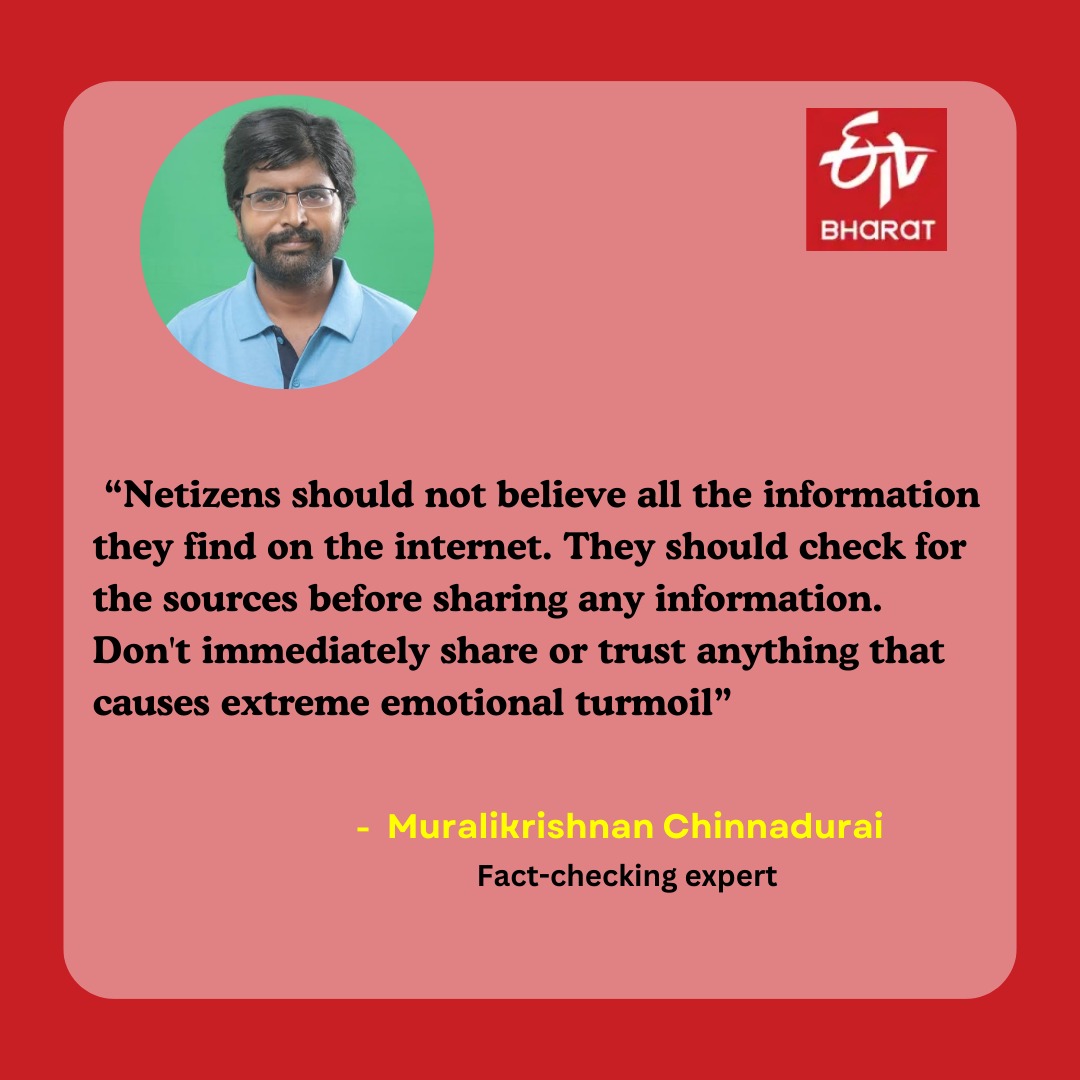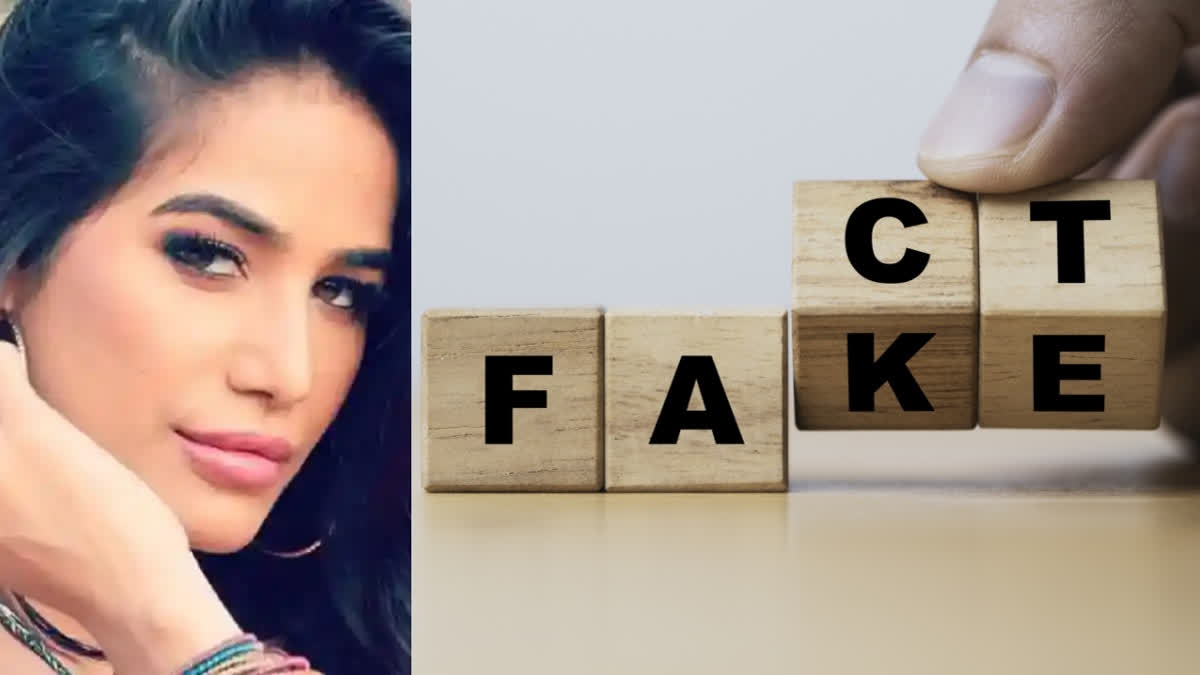Hyderabad: An actress' sudden death may be shocking and equally attention-grabbing. What is even more astonishing is when the actress herself resorts to disinformation and fakes her death over sensitive topics like cancer.
The case in question is model Poonam Pandey's recent 'publicity stunt' to fake her death on social media in the name of cervical cancer awareness. ETV Bharat spoke to fact-checking expert Muralikrishnan Chinnadurai on the incident and why it should be taken seriously.
ETB: As a fact checker, how do you approach Poonam Pandey faking her death on social media?
Chinnadurai: First this news was on her official Instagram page. No information was available anywhere else regarding it. No medical evidence was available to corroborate the Instagram page's claims. The news that the person who walked the red carpet three days ago in Mumbai died of cervical cancer was not convincing. However, due to the release on the official Instagram page, various media establishments reported the news. Although there is room for scepticism, fact-checking can be done based on documents and evidence. Fact-checking was a challenge as the medical report confirming her 'death' and the whereabouts of the deceased's body were not known.
ETB: Why was there a delay in debunking this fake news?
Chinnadurai: A fake Instagram post claiming Poonam Pandey's death was posted on the actress' official social media handle on the morning of February 2. But her relatives could not be contacted immediately in this regard. Her friend Munawar Faruqui also posted on his official page that he was shocked to hear the news and could not contain his grief. As no further evidence was available till 4 pm, the credibility of the news was raised by a national panel of fact-checking experts. A Mumbai-based fact-checker contacted various people close to Poonam Pandey at various stages to confirm the information. The fact-checker concluded that the news of her death was not true. However, it could not be officially dismissed as a hoax as there was insufficient evidence to establish it based on evidence. This type of fake news can be called POST TRUTH. That means it is difficult to establish it as a lie unless the person concerned or their family denies it.
ETB: Poonam Pandey claimed she had faked her death to create cervical cancer awareness. Why can't this be taken positively?
Chinnadurai: It cannot be considered positive. Whatever the intent, this tactic is fundamentally flawed. The reason is that the single disinformation of death shatters the hope of those who have been diagnosed with this type of cancer and are recovering from it. It is not so easy for the victims and their close people to recover from the impact of this psychological warfare. If awareness is the goal, then choosing the honest path would be the solution, instead of resorting to an orchestrated disinformation campaign. It sets a bad precedent.
ETB: Disinformation and disinformation campaign. What is the difference between the two? At what point does disinformation become a disinformation campaign?
Chinnadurai: Disinformation is false information that an individual knowingly spreads. A disinformation campaign is a method of campaign running by setting up an infrastructure for the creation and dissemination of disinformation. To communicate this, the fake news created by the official Instagram page in the Poonam Pandey case, within a day, has created major challenges at various stages and in various organisations across the country.
The media has been forced to publish fake news as truth. On social media sites including X (formerly Twitter), we saw tweets with the same descriptions being posted by various people under the hashtag #poonampandeydeath on that day. There is no way individual mourners would have used the same phrases. They had planned and established technical and human resources to increase the intensity of this disinformation campaign. Artificial spontaneous tweets were also observed on the social media site. Many people who believed this false propaganda to be true shared their condolences. This should be considered a serious crime and legal action should be taken against Poonam Pandey and her team who pushed the campaign.

ETB: Criminal action seems excessive when the motive is right? Can't we just ignore disinformation?
Chinnadurai: Passing by is the right tactic, and sometimes it's the best one. But we can't think so in this case. The World Economic Forum recently presented its 2024 Global Risk Report. In this report, fake news and disinformation are the primary factors in disrupting society. Globally, more than 50 percent of countries including India and the United States are looking forward to general elections this year. Hence, this year assumes importance to the extent that it is called the year of global elections. In this context, fake news and deepfakes created by artificial intelligence are among some major risk factors. India tops the list of most vulnerable countries. Considering the WEF report and taking Poonam Pandey's incident as an example, political parties may engage in planned disinformation campaigns to sway people in the elections. As such to avoid setting a precedent, action against Poonam Pandey will be prudent. Otherwise, it would be against the philosophy of democracy.

ETB: Elections are here. How can news organisations and consumers spot such fake news?
Chinnadurai: Media houses must ensure that the news they receive should be vetted at various stages. Before the news is published, the sources should be at hand. Netizens should not believe all the information they find on the internet. They should check for the sources before sharing any information. Don't immediately share or trust anything that causes extreme emotional turmoil. If we act in this way we can protect ourselves and our society from misinformation and disinformation campaigns.

Read More



